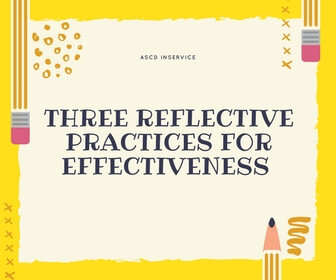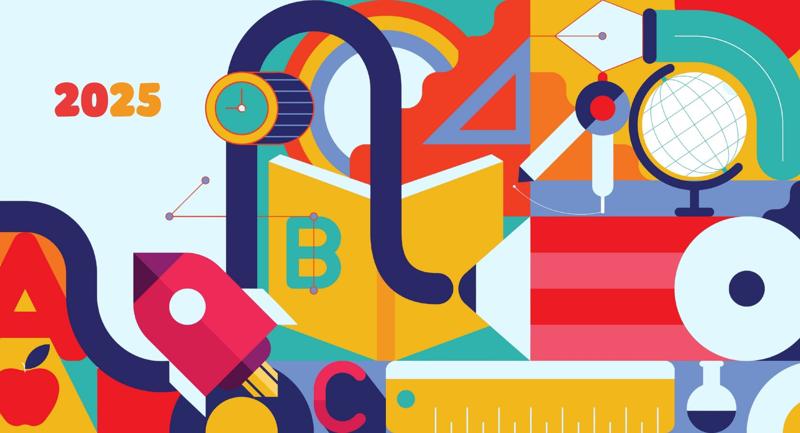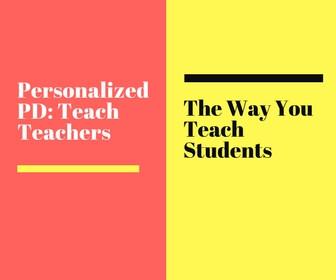“From the quiet reflection will come even more effective action.” Spoken by Peter Drucker, the famous management consultant, educator, and author, he found that increased think time or reflection led to better results no matter what the endeavor.
We are human, and as teachers we are also overly busy which means at times, we may make bad decisions or use hasty judgment. Is there a way to make lemonade out of our pesky lemons? Being an effective, successful teacher does not mean we do not have lemon days, but it does mean we can and should learn from those times thus making us life-long learners. But how can we learn unless we take the precious time to reflect on our teaching and vigilantly question our motives and practices? It is only then that we can improve and become effective teachers for our students.
What Is Reflection and Why Is It Important?
John Dewey (1933) was a pioneer in the concept of reflection as a form of thinking. He maintained that, “We do not learn from experience. We learn from reflecting on experience.” (p.78). He promoted educators to stand back from routine and move into a more conscious form of practice. Learning is ongoing in the teaching world; we are constantly evolving. There is always more to learn and understand in order to bolster our teaching skills. Braun and Crumpler (2004) put it best in their study on teacher reflection. “To be unreflective results in a teacher who is merely a skilled technician, i.e. one who has limited ability to make good decisions; to consider the consequences of their actions; and, to alter their actions.” (p. 60) This means that the 35-year veteran teacher can learn and grow equivalently to a brand-new teacher fresh out in the field. They just have to be willing to engage in the process of reflection and then be open to feedback. Otherwise, they are just going through the motions day in and day out.
The Practice of Reflection
You already do it. Many days, you casually share with your colleagues:
- My lesson bombed today!
- The students were so wiggly; I couldn’t get them to focus.
- They just didn’t get it.
Now, initially, we may jump to some wrong conclusions as to what went wrong. Mostly, many of us just move on and try something new. Reflective teaching, instead, entails a more systematic approach of assembling and tracking our thoughts and observations as we go. We must also enlist others in this process such as students and colleagues.
There are many ways to begin the process of reflection. Perhaps you want to focus on just one class or one lesson. Maybe it’s just one student. First, you must collect information on that person or situation. There are various ways to do this.
Maintain a Professional Journal
Amid the methods for reflection on teaching, maintaining a professional journal provides a point of entry to cultivate pedagogical improvement and to develop more effective daily practices. Elizabeth Tompkins, in her article A Reflective Teaching Journal: An Instructional Improvement Tool for Academic Librarians, scoured the literature on keeping a journal and shared her own experiences in doing so. She postulated that many educators could use additional training in how to teach and keeping a daily teaching journal provided a way to make notes on what did and did not go well in the classroom. Furthermore, journaling made the process more disciplined and gave a place for ideas and insights to take root. Finally, when we write, we gain clarity on what we are thinking. I love what E.M. Forster wrote: “How can I tell what I think till I see what I say?” The structure of daily writing allows this free space of thoughts to flow. You can record:
- Existing issues that occur in the classroom
- Make a list and focus on one or two for a week
- Thoughts on a lesson
- What went well in the lesson
- What could have been better
- Proof of progress from the students
- Evidence of learning
- Ideas for what you will do next year
- Keeping a running list
- Materials you may need to make a lesson better
- Student quotes
- Thoughts on students misbehaving during a class
- What were they doing? Why do you think they were off?
Peer Observation
Next, having a second pair of eyes often gives us valuable information we would have missed. Invite a colleague to visit your classroom and gather data about your lesson, the student engagement, and the atmosphere. After you have discussed with your colleague, you can then add it to your journal and include your own insights. This will relate back to the area you have identified to reflect upon. For example, you might ask your colleague to focus on which students are not engaged and perhaps why or maybe how you handle a distraction.
Student Feedback
The last way we can reflect is to have our students give us feedback. Often at the end of a quiz, I’ll add a question about what they think about a certain lesson or to give ideas about a certain issue in the classroom. This is always a risk, and we must put our ego aside to just listen. We must assure them that it is anonymous, and we are simply wanting to learn and grow as an educator. They appreciate that their teacher cares enough to ask. Again, as with peer feedback, we can add this data to our journals and then give our insights with it.
Effective Reflection
We never want to become stale or complacent in our teaching. The way to become even more effective is through looking back so we can leap forward. The process of keeping a teaching journal and constantly adding to it keeps us mindful of what we do and allows us to answer the question of why we do it. With feedback from various parties, we can also find ways to stay fresh and again become even more effective. As a result of your reflection you may choose to change things up or refine what you already do. This is what being effective is all about.
Dr. Stephanie Knight is an experienced 7th and 8th grade English language arts educator. She taught in Title One schools for eight years—helping them grow from underperforming to excelling—and then in an independent school for four years. Knight is now part of Grand Canyon University’s adjunct faculty where she teaches graduate level education and reading courses.





